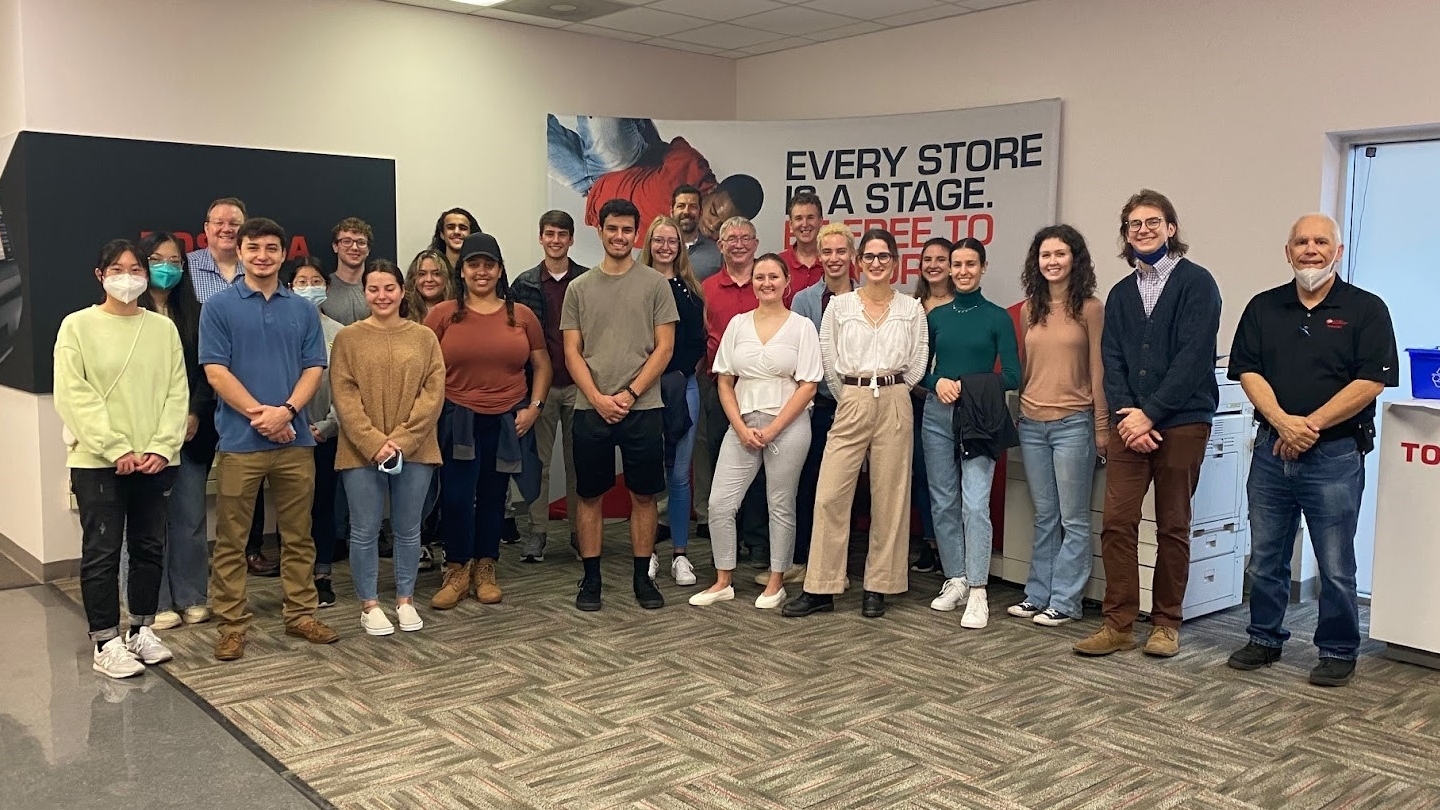Faculty Spotlight: Eda Kemahlioglu-Ziya

Nothing gives Eda Kemahlioglu-Ziya more satisfaction than bringing her passion for supply chain management research to her students in the classroom at North Carolina State University each day.
Kemahlioglu-Ziya, associate professor of operations and supply chain management in Poole College of Management’s Department of Business Management, teaches at both the undergraduate and graduate level. She’s led the Core Operations Management course for MBA students, as well as the Supply Chain and Logistics course for undergraduates – two courses where she can share two decades of research and specialized knowledge surrounding supply chain management with a group of students who are hungry to learn.
“Because I’m passionate about these topics, I definitely emphasize them in the courses,” she said. “We look at recent happenings in different industries – I follow those for research and can bring those into the classroom.”
Journey to NC State
Kemahlioglu-Ziya traveled from her home country of Turkey in the late 90’s to enroll at Georgia Tech and pursue her MS in Industrial Engineering and PhD in Industrial and Systems Engineering. Her focus on supply chain management gave her the opportunity to explore both industrial engineering and business school options upon graduation. She joined the faculty at the University of North Carolina at Chapel Hill’s Kenan-Flagler Business School before moving to NC State in 2013. Today, she’s an active faculty member, also serving on the college’s MBA curriculum committee.
“That was one of the best career moves I’ve made,” she said about the transition to NC State. “I’m very happy here.”
[pullquote color=”red” img=”value here” source=”Eda Kemahlioglu-Ziya”]The think and do mentality works very well with my background as an engineer, and with my research interests in supply chain management.[/pullquote]
Landing at NC State, where both the Poole College and the College of Engineering are national leaders, means she’s found a base of students who are excited and engaged in learning about how things work, and in supply chain management, she said.
“At Poole College, both at the graduate level and undergraduate level, there’s a pool of students interested in focusing on supply chain,” she said. “That makes my job a lot more fun.”
Impactful Research
Her interest in supply chain management as a student herself focused on the complexity of supply chains, and examining best practices for managing them among the different parties involved, she said. Today’s supply chain is not the vertical integration of Ford Motor Company in the old days, where Ford owned everything from the raw materials to the factories. Instead, each step in the supply chain is often owned by a different organization, each of which are also geographically diverse, she said.
“It’s a broad and challenging problem,” she said. “In the beginning, I looked at how to manage inventory across multiple locations in the supply chain in a way that makes customers happy – product availability goes up – but at the same time, also makes sure cost doesn’t go up too much, and more importantly, cost is shared across the parties.”
In her research, she also came to examine issues of incentive alignment coordination that arise in the supply chain. For example, if a pharmaceutical supply chain has capacity shortages, or if products are less profitable because the generic market opens up. She looks at ways manufacturers can address the issue when no one wants to invest in the product anymore, but patients still need the medications.
[spotlight-box label=”” heading=”Research Award” cta=”Read more about her impactful research” url=”https://poole.ncsu.edu/news/2017/08/15/faculty-research-award-recipient-profile-eda-kemahlioglu-ziya/”]Professor Kemahlioglu-Ziya is a two time winner of Poole College’s Summer Research Award. [/spotlight-box]
Kemahlioglu-Ziya said her interest and passion for the topic never wanes because it’s one where the environment is always changing. She can examine a company and what makes it successful, but as the environment changes, that same company may find itself scrambling to adapt its supply chain.
There’s also a great deal of variability, she said. Most companies prepare and maintain for averages when it comes to supply, but what happens when something goes wrong? If a company relies on a producer from overseas to ship something every four weeks, and that doesn’t happen, her research examines how companies deal with that.
“Finding strategies to deal with this uncertainty is what makes supply chain challenging but also very interesting,” she said.
Relevant Teaching
All of that comes directly into her classroom in the form of discussion, case studies and current events. Kemahlioglu-Ziya’s students are encouraged to bring in newspaper articles they find that deal with current supply chain topics.
“Students really like relating current business news to what we’re learning,” she said.
Sometimes it’s a little humorous, Kemahlioglu-Ziya said. One example involved the United States Olympic team ordering far more eggs than it needed for its athletes at the last winter Olympics, due to a translation error.
“We look at the fact that these things happen in real life, and we need to deal with the consequences,” she said. “That translates to supply chain management – it’s about more than plugging numbers, we also need to find creative solutions.”
She finds it piques her students’ interests and often drives them to learn more.
“One of the most fun and fulfilling things about teaching is when students come up to you at the end of the course and say ‘this sparked my interested in supply chain, I’m now going to take more courses,’” she said.
Even if they don’t major in it, some opt to obtain a supply chain certificate. Other students take part in practicums, and can bring the information they’ve learned to those real-life experiences.
“I often get emails from students after those practicums or internships, when they realize they used the things they learn in the course,” she said.
This article was originally written by Lea Hart for Poole Business Magazine, published here.
- Categories:


